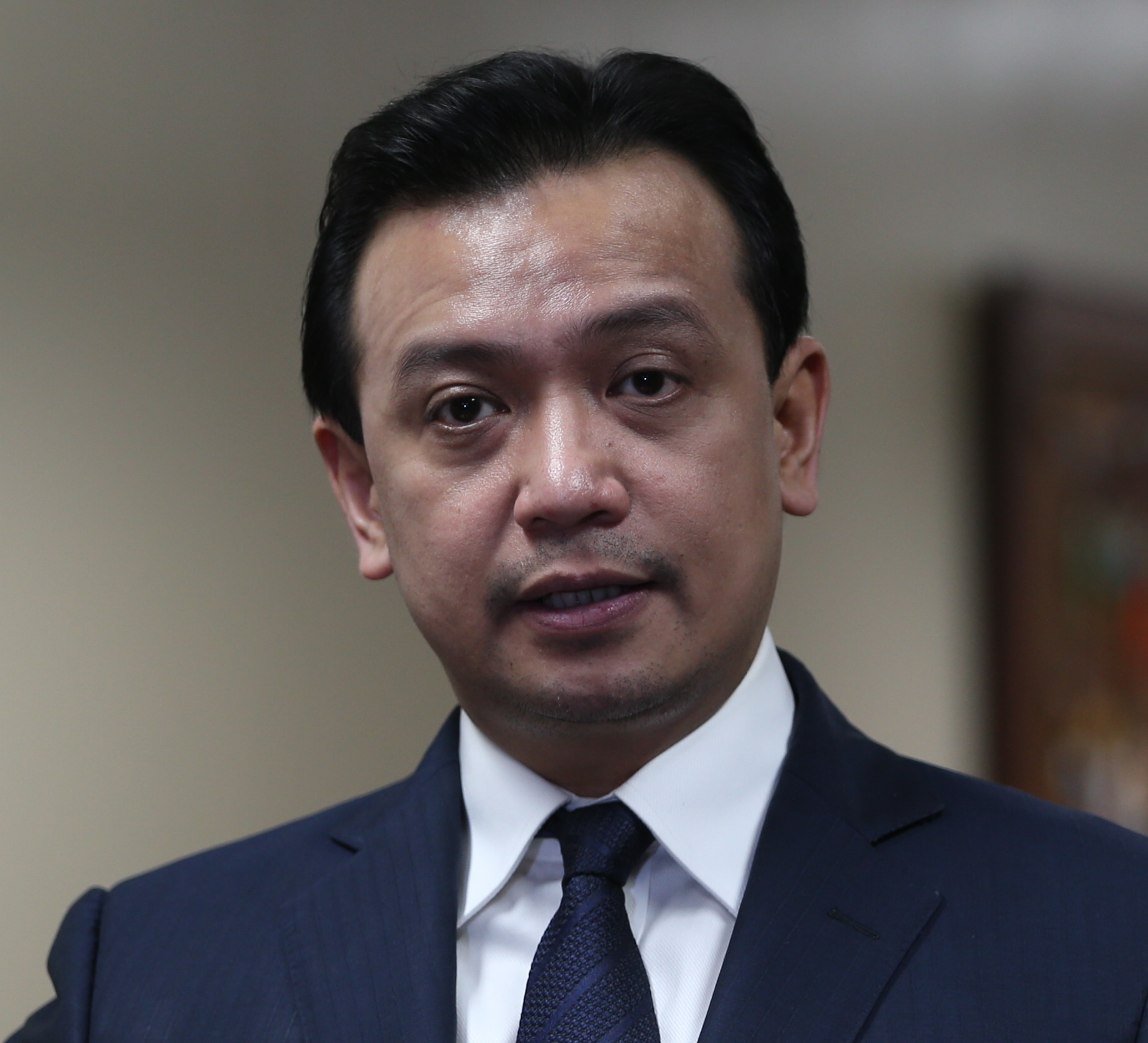Trillanes: ICC has put over 50 PH cops on notice in drug war probe

Antonio Trillanes IV PHILIPPINE DAILY INQUIRER FILE PHOTO
MANILA, Philippines — More than 50 active and former police officers who served under the previous administration are on the list of people being investigated by the International Criminal Court (ICC) for their role in the bloody war on drugs waged by former President Rodrigo Duterte.
This was according to an update given by former Sen. Antonio Trillanes IV on the ICC probe that centers on Duterte, who is being accused of crimes against humanity for the brutality and impunity by which his campaign tried to quell the drug menace, leaving thousands dead in its wake.
Trillanes on Wednesday said ICC investigators had already reached out to more than 50 Philippine National Police (PNP) officials to give them an opportunity to clear their names.
READ: Lawyer: Revived drug war in Davao may help speed up ICC probe
“This is primarily to give these implicated PNP personnel a chance to exonerate themselves,” Trillanes told the Inquirer in a phone interview. “So it’s just a part of due process. They’ll be given the opportunity to present their side.”
Article continues after this advertisementCiting sources “privy to the ongoing ICC probe,” Trillanes said the “direct communication” between ICC and the policemen occurred “in the past few weeks.”
Article continues after this advertisement“If they don’t signify their cooperation immediately, and present their side, [they would] be elevated to being suspects,” the former lawmaker said.
“So it’s up to them, if they don’t present their side… the evidence against them will hold, and will not be opposed,” he added.
In a separate post on X on Wednesday, Trillanes said the police officers, should they ignore the ICC communication, would be subject to travel restrictions and may eventually face arrest by the International Criminal Police Organization (Interpol).
The Philippines is a member of the Interpol and is bound by its terms on data exchange and cooperation among member countries.
PNP maintains stand
Reacting to Trillanes’ statement, the PNP reiterated that it would not recognize the ICC’s jurisdiction in connection with the drug war probe.
“We have a working judicial system and we have courts that can hear police abuses and irregularities,” PNP spokesperson Police Col. Jean Fajardo said at a forum in Manila.
“[This] has been proven because we have policemen who were charged, jailed and convicted,” Fajardo said. “That’s what the PNP will do. We will submit to the jurisdiction of the Philippines.”
The PNP earlier said it would also not enforce any arrest warrant that the ICC might issue on Duterte, echoing President Ferdinand Marcos Jr.’s position that the Hague-based tribunal had no authority to investigate his predecessor.
In July last year, Marcos said the Philippines would end all engagements with the ICC after the court rejected the government’s appeal to stop the ICC prosecutor’s investigation of alleged crimes against humanity committed during the Duterte administration. He reasserted this position in a statement last month.
In 2018, two years into Duterte’s term, the Philippines withdrew from the Rome Statute, the treaty which established the ICC, after the international body opened its preliminary examination of his brutal antinarcotics campaign. The withdrawal took effect on March 17, 2019.
Drawing local and international condemnation, the crackdown led to the death of more than 6,000 people, mostly in the slums, either in police operations usually marked by irregularities or in vigilante-style killings that were later linked to the campaign.
It was the official death toll given by the police, but human rights watchdogs believe the victims could be as many as 30,000.
‘Situations’
The ongoing ICC investigation is officially classified as “situations” since no case has been formalized yet. It covers extrajudicial killings “in the context of the so-called ‘war on drugs’ campaign” that occurred in the Philippines from Nov. 1, 2011, to March 16, 2019.
Once the ICC’s Office of the Prosecutor, led by Karim Khan, applies for a warrant with the Pre-Trial Chamber, the pretrial stage will follow. At this stage, the judges “confirm the suspect’s identity and ensure the suspect understands the charges,” according to the ICC information explaining its legal proceedings.
A three-man Pre-Trial Chamber, whose members were reshuffled in March, will look into the killings. Elected presiding judge was Ulia Motoc from Romania, with Reine Alapini-Gansou and Socorro Flores Liera as members.
In April 2017, lawyer Jude Josue Sabio filed a complaint against Duterte and 11 other government officials for mass murder and crimes against humanity, citing incidents from his years as Davao City mayor up to his presidency.
Two months later, Trillanes and Magdalo party list Rep. Gary Alejano filed a supplemental communication with the ICC. In 2018, the families of the drug war victims filed a separate communication.
In July 2021, the Supreme Court, in a unanimous vote, ruled that Duterte could not invoke the country’s withdrawal from the Rome Statute during his term to evade the ICC investigation.